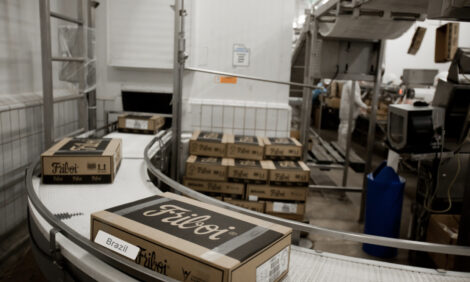



Beef Tax Could Increase Global Emissions
US - Imposing a 10 per cent tax on US beef production could actually increase greenhouse-gas emissions worldwide because of deforestation to create new cattle pasture in Brazil. That is according to a team from the US, who found that producing one less kilogram of beef in the US per year could induce carbon-equivalent emissions of 37–85 kg. They termed this production shift "leakage"."Putting the policy in place would do little to curb meat consumption because meat consumption is very price inelastic in the United States," Jerome Dumortier of Indiana University – Purdue University Indianapolis, US, told environmentalresearchweb. "The interesting result is that the simple policy without any additional import tax or 'border adjustments' would likely result in higher global greenhouse-gas emissions."
While the higher emissions primarily result from global expansion of pasture, Dumortier said that cattle in most countries outside the US also produce more methane per kilogram of beef due to their lower energy diet which leads to slower fattening and less beef per year. "Hence, if consumption remains unchanged, more methane is emitted for the same amount of beef," he explained.
Dumortier and colleagues employed a global economic model coupled to a greenhouse-gas emissions model, creating projections until 2023. The greenhouse-gas model considered methane production by cattle digestive systems; methane and nitrous oxide emitted during manure management; nitrous oxide given off by soil; and emissions from land-use change, with a focus on biomass and soil carbon.
The model indicated that a 10 per cent tax on US-fed steer prices would reduce beef cow numbers by 2023 by just over 26 per cent, and cut US beef production by roughly 17 per cent to 10.46 million tons. The price rise of 3.68 per cent projected for beef would reduce US consumption by 3.61 per cent, to 12.61 billion tons, a drop of nearly 1 kg per head. Globally, beef cowherd would be cut by nearly 1 per cent but big livestock-producing countries would see increases in cattle herd, for example Brazil (~6 per cent), Australia (~4 per cent), India (~3.5 per cent) and Indonesia (~7 per cent). Global net export of beef and veal would increase by 17.3 per cent, with Brazil seeing an increase in net exports of 24.75 per cent.
"Among countries and products where international trade is allowed, any attempt to reduce output in one sector in one country will be mitigated by an increase in output in other sectors and in other countries," the scientists wrote in Environmental Research Letters (ERL).
Brazil received particular attention as it has 200 million cattle and vast areas of tropical rainforest storing a significant amount of carbon. Beef produced on newly deforested land in Brazil creates an estimated 700 kg of carbon-equivalent emissions per kilogram of carcass. Any land returned to its natural state in the US because of reduced beef production would probably be in the west, where conditions are dry and carbon storage is low.
The team found that increasing the number of cattle per acre outside the US – the stocking rate – could offset the expansion of pasture land. In the late 1990s the national average stocking rate for Brazil was 0.54 animals per hectare; some believe that this could be raised to 0.96 by using high-technology systems. Although introducing overgrazing or maintaining a high stocking rate by grain feeding could "produce other problems as well as contribute to higher greenhouse gas emissions", according to Dumortier.
"The impact of domestic agriculture policies on the environment can often have unforeseen consequences and economics plays an important role," said Dumortier. "Neither the economic impacts nor the environmental impacts of agriculture are confined within national or even regional borders."
And Dumortier reckons that narrowing the leakage gap is not enough. "The paper points out that in this case, and this may be unique from other markets, the leakage would not be easily thwarted by more countries imposing a similar tax," he said. "The policy would have to be put in place everywhere or otherwise address production in the countries where carbon-rich forests are being converted to pasture. Global accounting is necessary because there can be regional differences in the greenhouse-gas emissions of different beef production systems."
Now the team will investigate what type of border adjustments are needed to avoid the negative impacts of a beef production tax and whether a beef consumption tax would solve the dilemma. "We hope to be able to answer those questions in the future with our model," said Dumortier.
TheCattleSite News Desk


